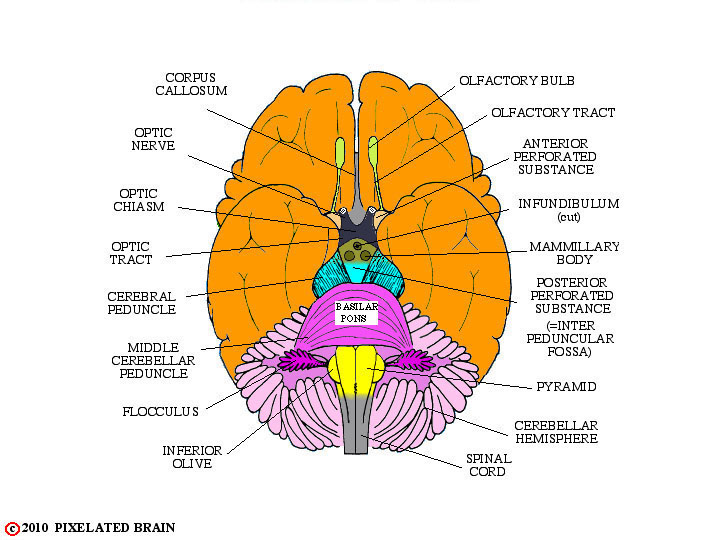

FIGURE 2-13
Here, as elsewhere in this module, we include the diencephalon in our discussion of brainstem anatomy, even though - strictly speaking - it is not part of the brainstem. Also, we may at times refer to the diencephalon as the thalamus, even though this is not quite right either. While unfortunate, this is the way people use these words. Take another look at Figure 2-2 if this is confusing.
In some respects, the anatomy of the ventral brainstem is relatively simple. This view shows the major landmarks that you should be able to identify. In line with the above, we have also included a few structures that are part of the diencephalon (mammillary body, etc.) and hemisphere (corpus callosum, etc)
The problem is that this is also the logical time to identify the cranial nerves. We don't want to get into the details, because we take the nerves up later in the course, but (for this module) you should be able to pick out each nerve and relate its point of exit from the brainstem to surrounding structures. The next slide gives you all you need to know for now.